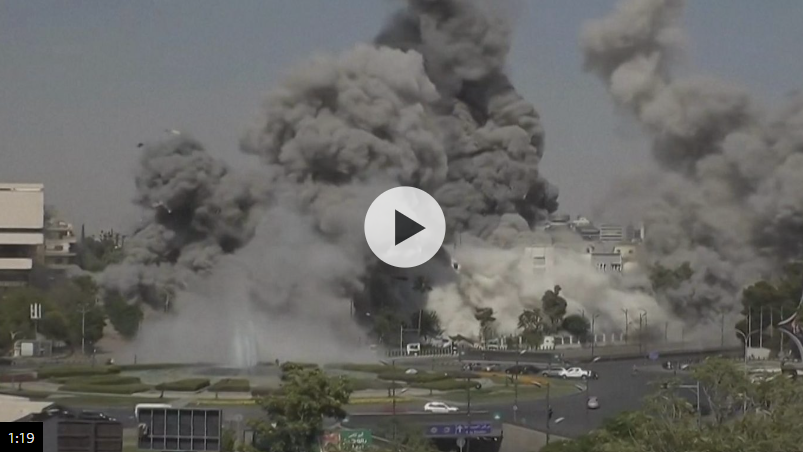Tensions in southern Syria have escalated sharply after Israeli airstrikes struck key government sites in Damascus and Suweida for a third consecutive day. The strikes come amid deadly sectarian violence between Druze militias and Bedouin tribes in Suweida province, which has left over 350 people dead since Sunday.
Israel’s Prime Minister Benjamin Netanyahu stated the military action aimed to protect the Druze community, with deep familial and historical ties to Israel and the Golan Heights. Netanyahu emphasized that Israel was “working to save our Druze brothers,” as Druze residents fled across the fortified border into Israeli territory, prompting tear gas dispersals by Israeli forces.
In Damascus, Israeli strikes targeted the Syrian defence ministry and a location near the presidential palace. Defence Minister Israel Katz warned that Israel would continue its campaign until Syrian forces fully withdrew from Suweida. Video footage from central Damascus captured the moment a TV presenter ducked under a desk as a missile struck nearby.
Meanwhile, the US has stepped in diplomatically. Secretary of State Marco Rubio announced that “specific steps” had been agreed upon to end the violence, signaling possible de-escalation. Syria’s interim government under Ahmed al-Sharaa welcomed these efforts, while also blaming Israel for igniting a “large-scale escalation.”
The violence was sparked by the abduction of a Druze merchant last Friday, leading to retaliatory attacks and full-blown conflict between Druze militias and Bedouin fighters. Syrian government forces intervened but were soon accused of looting and abusing civilians, further straining relations with the Druze community.
According to the UK-based Syrian Observatory for Human Rights, the humanitarian situation in Suweida has deteriorated rapidly. Hospitals face shortages, civilians are under sniper fire, and widespread panic prevails.
With hundreds already dead and critical infrastructure damaged, the situation remains volatile. While Israel vows to press on militarily, the US-brokered agreement offers a fragile hope for peace in a region caught between sectarian tensions, regional rivalries, and ongoing power struggles.

